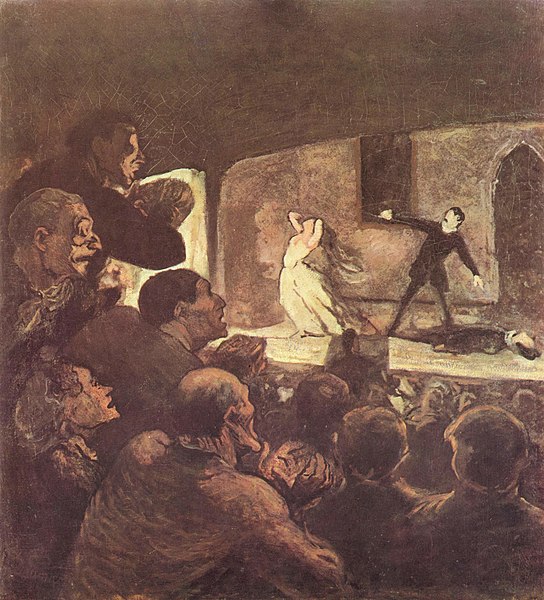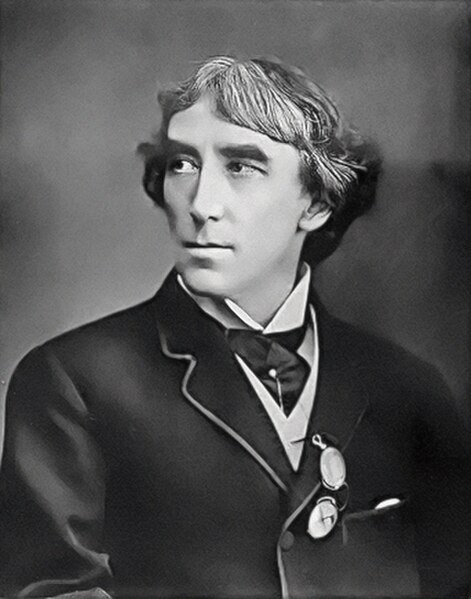Nineteenth-century theatre
Nineteenth-century theatre describes a wide range of movements in the theatrical culture of Europe and the United States in the 19th century. In the West, they include Romanticism, melodrama, the well-made plays of Scribe and Sardou, the farces of Feydeau, the problem plays of Naturalism and Realism, Wagner's operatic Gesamtkunstwerk, Gilbert and Sullivan's plays and operas, Wilde's drawing-room comedies, Symbolism, and proto-Expressionism in the late works of August Strindberg and Henrik Ibsen.
Honoré Daumier, Melodrama, 1856–1860
Covent Garden Theatre in 1809.
Edward Bulwer-Lytton.
Henry Irving portrait
The well-made play is a dramatic genre from nineteenth-century theatre, developed by the French dramatist Eugène Scribe. It is characterised by concise plotting, compelling narrative and a largely standardised structure, with little emphasis on characterisation and intellectual ideas.
Bataille de dames, 1851, a locus classicus of the well-made play.
Eugène Scribe
Scribe's successors with pièces bien faites included, top: Alexandre Dumas fils, Victorien Sardou; bottom: Eugène Labiche (l), Georges Feydeau.
British authors of well-made plays: W. S. Gilbert, Arthur Wing Pinero; below: Noël Coward (l), Alan Ayckbourn








